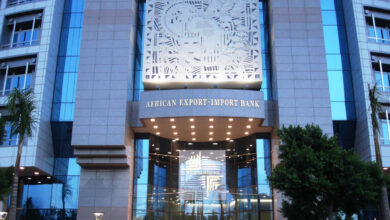US Tariffs Have Limited Impact, but Ghana Must Seize U.S. Trade Opportunities – BoG Governor

The Governor of the Bank of Ghana (BoG) Dr Johnson Asiama has downplayed immediate risks from U.S. tariff measures on Ghana’s exports, noting that the country’s exports to the American market represent only about 3.5 percent of total exports.
According to him, the limited exposure means the direct impact of the tariffs on Ghana’s economy will be minimal in the short term. “The positive aspect is that Ghana’s exports to the United States represent a relatively small share of our total exports, approximately 3.5 percent. As such, the direct impact of the recent U.S. tariff measures is expected to be minimal in the short term,” he explained.
However, the Governor stressed that the broader implications should not be overlooked, especially given the historical role of trade frameworks such as the African Growth and Opportunity Act (AGOA) in opening up U.S. markets to Ghanaian exporters.
“AGOA and similar frameworks have historically provided valuable opportunities for Ghanaian exporters,” he stated, adding that such platforms remain crucial for sustaining and growing Ghana’s presence in the U.S. market.
He stressed that while current trade volumes may be modest, the U.S. remains a strategic partner whose market offers significant opportunities for Ghana’s traditional and non-traditional exports, including cocoa, processed foods, textiles, and emerging sectors like horticulture and services.
“What is important now is not just to cushion ourselves from the immediate effects of these tariffs, but to position Ghana to take fuller advantage of trade opportunities with the United States,” the Governor said.
He noted that strengthening value addition in export sectors, improving standards to meet international requirements, and expanding into niche U.S. markets would be critical next steps.
“The goal must be to continue to develop and expand Ghana’s exports to the U.S., not only to diversify our foreign exchange earnings but also to create more resilient trade linkages that can withstand policy shifts,” he concluded.




